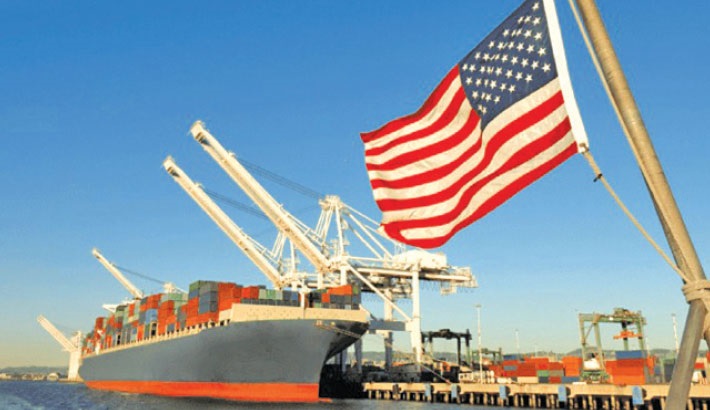USA’s Reciprocal Tariff Policy: A Bane or Boon?
Chinmay Prasun Biswas | Source : Daily Sun, 25 March 2025

In mid-February of this year, President Donald Trump has declared his plan to impose reciprocal tariff on the entire world. He wants to initiate it from the first day of the new fiscal year 2025-26. The US Department of Commerce has already started working on it. Financial analysts claim that if this plan is finally implemented, a big change will occur in the arena of international trade. It will push the world’s economy back by around 100 years because it will be imposed selectively on different countries. There is a strong risk that all the rules framed by the World Trade Organisation will be dismantled. It will affect his country's international trade as well.
In financial terms, the tax that a country levies on imported goods is called tariff. For instance, we can talk about our readymade garments. When this product enters the US market, manufacturers in Bangladesh have to pay tax or duty to the US government. If the tariff increases, price of the imported goods also increases.
Tariff in international trade is mostly unavoidable. It makes goods costly. Moreover, tariff can slow down the pace of business. After the end of World War II in 1945, the world has been gradually moving towards free trade because industrially developed countries consider tariffless trade as mutually beneficial. But developing countries have problems in accepting free trade. It is not possible for these countries to compete with the products of developed countries. If there is free and unfettered trade, the market will be completely grabbed by a handful of countries. Keeping this in mind, the rules related to world trade were framed later.
The General Agreement on Tariffs and Trade (GATT) was signed in 1947. GATT was succeeded by the World Trade Organisation (WTO) in 1995. It plays a major role in shaping the tariff policy of international trade. While drafting the law, the GATT and WTO officials agreed on one point -- developing countries would get some special privileges in international trade.
The WTO introduced this rule for the developing countries to survive in the competitive market stating that developed countries (say for example the USA) will impose lower tariffs on goods imported from developing countries (such as Bangladesh). However, this provision is not mandatory to follow. Developed countries may choose to not follow this rule if they want.
Till now, international trade has been carried out assuming this provision as a universally-accepted convention. Under this rule, a developing country imposes high tariff on goods imported from America and Europe. As a result, foreign goods are always sold at high prices in their domestic market whereas locally-produced goods are available at cheaper rates. But Trump wants to change this rule. If his proposed reciprocal tariff policy is implemented, the US government will also collect an equal amount of import duty from products of the countries that impose the same tax on American products.
Trump has termed it as a great system as he intends to implement tariff justice through this. However, he did not clarify how it will be calculated. As reported, the US Department of Commerce is preparing an outline in this connection. There are multiple reasons behind this initiative. During his election campaign, he promised to initiate a tariff war.
According to information published on 6 February by the US Commerce Department, the United Stated had a trade deficit of 98.4 billion dollars on goods and services (as of December 2024) with 43 countries including Bangladesh. At present, Bangladesh does not enjoy duty-free access to the US market due to the suspension of its GSP status in 2013 following the Rana Plaza incident. But Bangladesh may face greater risk as it moves towards graduation from least developed country (LDC) status in 2026. If new tariff is imposed, it may have harmful impacts on Bangladesh's exports.
More than 80% of Bangladesh's total export earnings come from ready-made garment sector. The United States is the single largest market of ready-made garments for Bangladesh. Due to different reasons, Bangladesh's ready-made garment export to the United State has been declining for the last two years. Other countries like India, Pakistan, Indonesia and Vietnam are taking this advantage. These countries are capitalising on different issues including workers' dissatisfaction, closure of factories, and disruption of production that are hamstringing the growth of Bangladesh’s RMG sector.
So, it is necessary for the government policymakers to work closely with business organisations, industry owners and stakeholders involved in the export-oriented sectors to maintain competitiveness and find out new markets. Bangladesh's trade advantages need to be preserved through policy reforms and diplomatic efforts. In particular, strengthening bilateral and multilateral trade negotiations are necessary to overcome the negative impacts of the proposed US tariff policy.
______________________
The writer is a former
Commissioner of Taxes